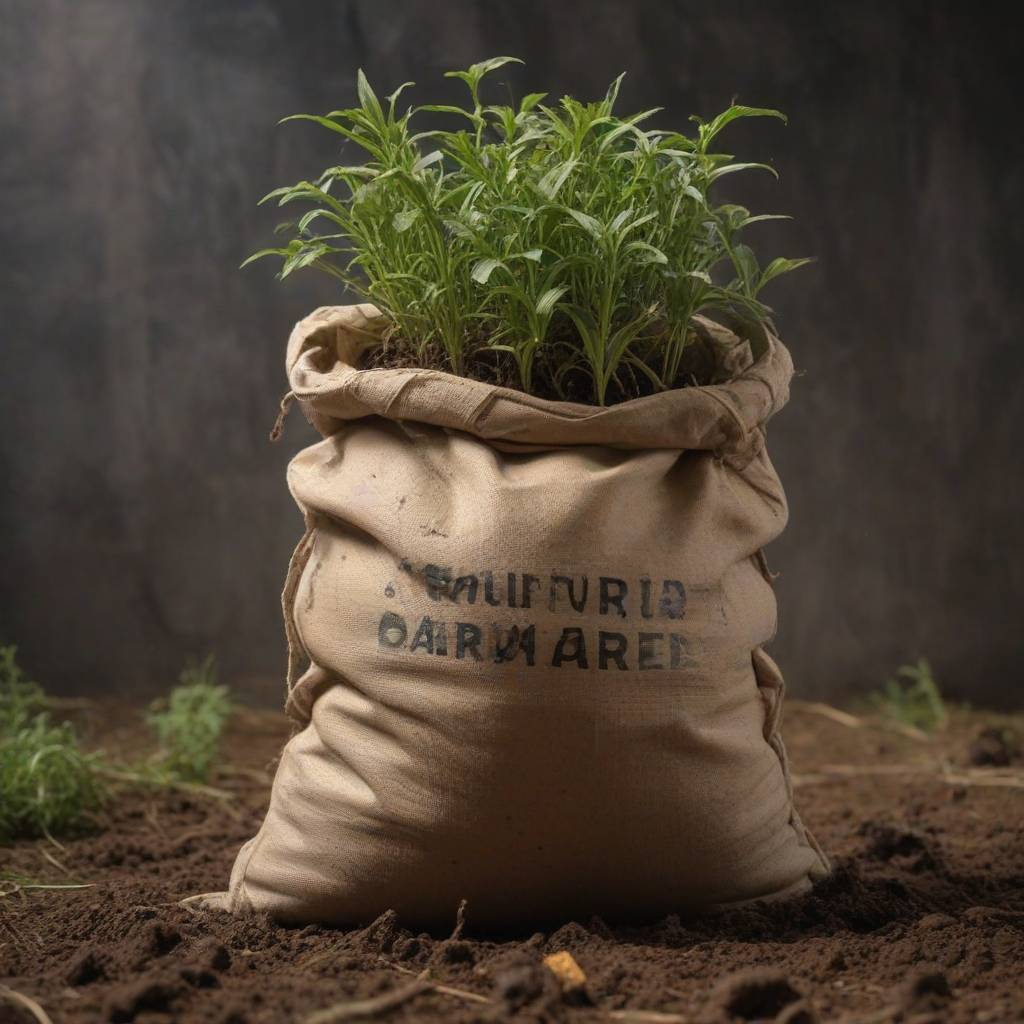Manure, a natural and sustainable fertilizer, offers unparalleled benefits for plant growth and soil health. Derived from animal waste, it provides essential nutrients that plants crave. Rich in nitrogen, phosphorus, and potassium, manure boosts plant vitality and productivity. Composting Manure for Plants transforms it into a more usable form, enhancing its nutrient availability and reducing potential pathogens.
Applying manure to your garden or farm improves soil structure, increases water retention, and promotes healthy root development. Manure’s organic matter fosters microbial activity, which aids in nutrient cycling and disease suppression. Different types of manure, like cow, horse, chicken, and rabbit, cater to various plant needs. For instance, chicken manure, high in nitrogen, suits leafy greens perfectly.
Embracing manure as a fertilizer supports sustainable agriculture and gardening practices. It recycles waste, reduces reliance on synthetic fertilizers, and nurtures the soil naturally. By understanding and utilizing manure’s full potential, gardeners and farmers can cultivate thriving, healthy plants while promoting environmental stewardship. Let’s explore Manure for Plants: Nature’s Nutrient-Rich Gift by Zardens.
Cow Manure
Cow manure is a well-balanced, nutrient-rich fertilizer highly valued in gardening and agriculture. It contains nitrogen, phosphorus, and potassium, which are essential for plant growth. Additionally, cow manure is rich in organic matter, which improves soil structure and water retention. Before application, compost cow manure to reduce its high moisture content and odor. Composting also kills any potential pathogens and weed seeds, making it safer for use. Cow manure is versatile and can be used for a wide range of plants, from vegetables to flowers. Its slow-release nature ensures a steady supply of nutrients throughout the growing season. Incorporate cow manure into the soil before planting, and it will support robust root development and vigorous growth.
Application Tips of Cow Manure
- Compost First: Compost cow manure before use. It reduces odor, kills pathogens, and improves nutrient availability for plants.
- Timing Matters: Apply composted manure in early spring or fall. It ensures nutrients are available when plants need them.
- Work into Soil: Incorporate manure into the topsoil. It prevents nutrient runoff, reduces odor, and improves soil structure.
- Avoid Fresh Manure: Fresh cow manure can burn plants. Always compost it to ensure safe application and optimal plant health.
- Uniform Application: Spread manure evenly. It ensures all plants receive adequate nutrients, promoting uniform growth across your garden.
- Use Appropriate Quantities: Apply the right amount. Too much manure can lead to nutrient imbalances and potential water pollution.
- Water After Application: Water the soil after applying manure. It helps nutrients penetrate the soil and reach plant roots efficiently.
- Monitor Soil pH: Regularly check soil pH. Cow manure can slightly alter pH levels, requiring occasional adjustments for optimal plant growth.
- Combine with Mulch: Use mulch alongside manure. It helps retain moisture, suppresses weeds, and further enriches the soil.
- Store Properly: Store unused manure in a covered, dry area. It prevents nutrient loss and contamination, ensuring it remains effective for future use.
Benefits
- Nutrient-Rich: Cow manure provides essential nutrients like nitrogen, phosphorus, and potassium, vital for healthy plant growth.
- Improves Soil Structure: It enhances soil texture, making it easier for roots to penetrate and access nutrients and water.
- Increases Microbial Activity: Manure boosts beneficial soil microbes. These microbes help break down organic matter and cycle nutrients.
- Enhances Water Retention: It improves soil’s ability to retain water, reducing the need for frequent watering and promoting plant health.
- Sustainable Fertilizer: Using cow manure recycles farm waste. It reduces the reliance on synthetic fertilizers, promoting sustainable gardening practices.
- Organic Matter Addition: Adds valuable organic matter to the soil. It improves soil fertility and supports long-term plant health.
- Cost-Effective: Often cheaper than synthetic fertilizers. It provides an economical solution for enhancing garden productivity.
- Reduces Soil Erosion: Enhances soil structure, which helps prevent erosion, maintaining soil integrity and promoting plant stability.
- Natural Weed Control: Properly composted cow manure can suppress weed growth, reducing competition for nutrients with your plants.
- Eco-Friendly: Environmentally friendly fertilizer option. It promotes healthy ecosystems and reduces the carbon footprint of gardening.
✒️ "In fields where crops aspire to grow, Manure becomes the soil's best show. Its richness feeds the hungry land, Where plants stretch out their grateful hand"
Horse Manure
Horse manure is another excellent option for fertilizing plants, especially nitrogen-loving crops like corn and tomatoes. It is rich in nitrogen, which promotes leafy growth and overall plant vigor. However, horse manure often contains weed seeds, so composting is crucial to eliminate them. The composting process also stabilizes the nutrient content, making it more effective and safer for plants. Horse manure improves soil structure by increasing aeration and drainage, which is beneficial for heavy clay soils. Apply horse manure in the fall or early spring to allow it to break down before the growing season. This type of manure supports the healthy growth of garden plants, providing essential nutrients and improving soil health.
Application Tips of Horse Manure
Horse manure enriches garden soil with essential nutrients. Compost it first to kill weed seeds and pathogens effectively.
- Preparation: Mix horse manure with straw or bedding material for balanced composting. Turn the pile regularly for aeration.
- Composting Time: Allow the compost to mature for 6-12 months. This ensures nutrient availability and reduces potential plant burn.
- Soil Improvement: Incorporate composted horse manure into the topsoil. It improves soil structure, aeration, and moisture retention.
- Nutrient Boost: Horse manure is rich in nitrogen, which is essential for leafy plant growth. It’s ideal for heavy feeders like tomatoes.
- Application Timing: Apply manure in early spring or fall. This gives time for nutrients to integrate before planting season.
- Mulching: Use aged horse manure as mulch around plants. It suppresses weeds and gradually releases nutrients into the soil.
- Tea Preparation: Make manure tea by soaking horse manure in water. Use this liquid as a foliar spray for an immediate nutrient boost.
- Safety Precautions: Wear gloves when handling manure to prevent the spread of pathogens. Wash hands thoroughly after application.
- Odor Control: Properly composted horse manure has a reduced odor, making it pleasant to use in garden spaces.
- Eco-friendly: Using horse manure recycles waste, reducing reliance on synthetic fertilizers and supporting sustainable agriculture.
Benefits
Horse manure offers multiple advantages for gardeners. It boosts soil fertility and promotes healthy plant growth naturally.
- Nutrient-Rich: High in nitrogen, phosphorus, and potassium, horse manure provides essential nutrients for plants.
- Soil Structure: It improves soil texture, enhancing water retention and drainage capabilities simultaneously.
- Microbial Activity: Increases beneficial microbial populations in the soil, aiding in nutrient breakdown and disease suppression.
- Sustainable Practice: Recycles waste products into valuable soil amendments, reducing environmental impact and enhancing sustainability.
- Weed Control: When composted correctly, it suppresses weed growth, saving time and effort in garden maintenance.
- Plant Health: Encourages vigorous growth and higher yields in vegetables, fruits, and ornamental plants.
Using horse manure effectively enhances your garden’s productivity and sustainability, promoting a healthier environment for plants and soil.
Chicken Manure
Chicken manure is one of the most nutrient-dense fertilizers available, particularly high in nitrogen. This makes it ideal for plants that require a significant nitrogen boost, such as leafy greens and vegetables. However, fresh chicken manure can be too strong and may burn plants, so it must be composted before use. Composting chicken manure reduces its potency and makes the nutrients more readily available to plants. Additionally, the composting process kills harmful pathogens, ensuring the manure is safe for the garden. Once composted, chicken manure provides a quick-release source of nutrients that can significantly enhance plant growth. Apply it to the soil before planting or use it as a top dressing during the growing season for the best results.
Application Tips for Chicken Manure
- Composting: Always compost chicken manure before use. Fresh manure can burn plants due to high nitrogen content.
- Mix with Carbon-Rich Materials: Balance nitrogen by mixing manure with straw or leaves. This enhances composting and nutrient distribution.
- Apply in Fall: Spread composted manure in fall. This allows nutrients to integrate into the soil before spring planting.
- Use as a Soil Amendment: Incorporate composted chicken manure into garden soil to improve texture, fertility, and microbial activity.
- Liquid Manure: Create manure tea by soaking chicken manure in water. Dilute the liquid before using it as a foliar spray.
- Avoid Direct Contact: Keep manure away from plant stems and leaves. Direct contact can harm delicate plant tissues.
- Regular Testing: Test soil regularly to monitor nutrient levels. Adjust manure application based on soil test results.
- Moderation: Use chicken manure sparingly. Over-application can lead to nutrient imbalances and potential environmental issues.
- Safety Precautions: Wear gloves and wash hands thoroughly after handling chicken manure. This prevents potential health risks.
- Even Distribution: Spread manure evenly across the garden. Uneven application can cause nutrient hotspots and plant stress.
Benefits
- Nutrient-Rich: Chicken manure provides essential nutrients like nitrogen, phosphorus, and potassium, promoting vigorous plant growth.
- Improves Soil Structure: Adds organic matter, enhancing soil texture, aeration, and water retention.
- Boosts Microbial Activity: Stimulates beneficial soil microbes that aid in nutrient cycling and disease suppression.
- Sustainable Fertilizer: Recycles waste from poultry farming, reducing reliance on synthetic fertilizers and promoting sustainability.
- Enhances Plant Health: Provides a balanced nutrient profile, resulting in healthier, more resilient plants.
- Increases Yield: Consistent use of chicken manure leads to higher crop yields and improved garden productivity.
- Organic Gardening: Ideal for organic gardening practices, aligning with natural and eco-friendly farming methods.
- Cost-Effective: Readily available and cost-effective, especially if sourced from local poultry farms.
- Environmentally Friendly: Reduces chemical runoff and pollution, supporting a healthier ecosystem.
- Long-Lasting Effects: Improves soil health over time, providing lasting benefits for future planting seasons.
Rabbit Manure
Rabbit manure stands out as an exceptional fertilizer due to its high nutrient content and ease of use. Unlike other manures, rabbit manure can be applied fresh without composting, as it does not burn plants. It is rich in nitrogen, phosphorus, and potassium, essential for healthy plant growth. Rabbit manure also contains beneficial microorganisms that enhance soil fertility and promote plant health. Its pellet form makes it easy to handle and spread evenly in the garden. Apply rabbit manure directly to the soil around plants or mix it into compost for added benefits. Its quick-release nature ensures that plants receive an immediate nutrient boost, supporting vigorous growth and abundant yields.
Application Tips of Rabbit Manure
- Direct Use: Rabbit manure can be applied directly to plants without composting. It won’t burn plant roots.
- Composting: Mix rabbit manure with kitchen scraps and yard waste. This speeds up the composting process.
- Mulching: Spread rabbit manure around the base of plants. It conserves moisture and suppresses weeds effectively.
- Soil Amendment: Work rabbit manure into the soil. This improves soil structure and nutrient content.
- Manure Tea: Steep rabbit manure in water for a nutrient-rich liquid fertilizer. Use it for foliar feeding.
Benefits
- High Nitrogen: Rabbit manure is rich in nitrogen, which promotes leafy green growth and overall plant health.
- Balanced Nutrients: It provides balanced nutrients, including phosphorus and potassium, essential for flowering and root development.
- Improves Soil Texture: Adds organic matter, improving soil aeration and water retention. It makes heavy soils more workable.
- Enhances Microbial Activity: Rabbit manure boosts beneficial microbial activity. This helps decompose organic matter and cycle nutrients.
- Sustainable Fertilizer: Rabbit manure is a renewable resource, reducing the need for synthetic fertilizers. It supports organic gardening practices.
Rabbit manure is a gardener’s best friend. Its direct application, composting benefits, and nutrient-rich profile make it ideal for improving soil and plant health. Use rabbit manure to enhance your garden’s productivity, foster sustainable practices, and enjoy lush, healthy plants year-round. Whether you’re mulching, making manure tea, or enriching soil, rabbit manure is your go-to organic fertilizer.
🌱“From humble dung to nature’s gift,
Manure’s worth gives crops a lift.
With every spread upon the earth,
Plants thrive in their green rebirth.“
Green Manure
Green manure is a practice where specific plants are grown and then plowed back into the soil to improve fertility and structure. It enriches soil with organic matter, enhances nutrient levels, suppresses weeds, and promotes beneficial microbial activity. This sustainable technique fosters healthier crops and reduces the need for synthetic fertilizers.
Application
- Plant Selection: Choose nitrogen-fixing legumes like clover, alfalfa, or vetch for their ability to add nitrogen to the soil.
- Crop Rotation: Incorporate green manure crops into rotation schedules to break pest and disease cycles.
- Timing: Sow green manure in fall or early spring, allowing time for growth before incorporation.
Benefits
- Soil Enrichment: Green manure adds organic matter, enhancing soil structure and water retention.
- Nutrient Boost: Nitrogen-fixing plants increase soil nitrogen levels, reducing the need for synthetic fertilizers.
- Weed Suppression: Dense growth of green manure crops shades out weeds, minimizing weed competition.
- Erosion Control: Root systems of green manure plants help prevent soil erosion, especially on sloping land.
- Cost Savings: Reduces reliance on external inputs like fertilizers, promoting economic sustainability.
Green manure presents a win-win solution, enriching soil fertility while minimizing environmental impact and production costs. Embracing this practice signifies a step towards sustainable agriculture and a greener future.

Manure is organic, enhancing soil fertility and structure while promoting microbial activity, crucial for plant growth. It contains a diverse array of nutrients, including nitrogen, phosphorus, and potassium, in forms readily available to plants. Unlike synthetic fertilizers, manure improves soil health, reduces erosion, and increases water retention, leading to sustainable agriculture practices. Additionally, manure recycles organic waste, reducing environmental pollution and greenhouse gas emissions. Its use aligns with organic farming principles, supporting biodiversity and ecosystem resilience. Ultimately, choosing manure fosters healthier soils, promotes long-term sustainability, and contributes to a more balanced and resilient agricultural system.
comparison chart detailing the characteristics
| Characteristic | Cow Manure | Horse Manure | Chicken Manure | Rabbit Manure |
|---|---|---|---|---|
| Nutrient Content | Moderate levels of nitrogen, phosphorus, and potassium. Rich in organic matter. | Similar nutrient composition to cow manure, but may vary depending on diet. | High in nitrogen, phosphorus, and potassium. | High in nitrogen and phosphorus, lower in potassium. Rich in organic matter. |
| Odor | Moderate to strong odor, especially when fresh. | Strong odor, especially when fresh. | Strong odor, especially when fresh. | Minimal odor, especially when compared to other manures. |
| Texture | Usually moist and clumped, may contain bedding material. | Variable texture depending on bedding and diet. Often contains straw or wood shavings. | Often dry and granular, mixed with chicken bedding. | Usually dry and granular, mixed with hay or straw. |
| pH Level | Slightly alkaline. | Slightly acidic to neutral. | Variable, can be slightly acidic. | Slightly acidic. |
| Decomposition Rate | Moderate. | Moderate to fast. | Fast. | Fast. |
| Application | Requires composting or aging before use to prevent burning plants due to high nitrogen content. | Requires composting or aging, but can be applied fresh in small amounts. | Can be applied fresh or composted. | Can be applied fresh or composted. |
| Weed Seeds | May contain some weed seeds, depending on feed and composting process. | May contain weed seeds if not composted properly. | May contain weed seeds. | Generally free of weed seeds. |
| Pathogens | May contain pathogens such as E. coli and Salmonella, but composting reduces the risk. | May contain pathogens, particularly if not composted properly. | May contain pathogens such as E. coli and Salmonella, composting is essential. | Less likely to contain harmful pathogens compared to other manures. |
This chart should give you a comprehensive overview of the characteristics of cow, horse, chicken, and rabbit manure, aiding in decision-making for agricultural or gardening purposes. Let’s explore Manure for Plants: Nature’s Nutrient-Rich Gift by Zardens.
Subscribe to Zardens newsletter!


